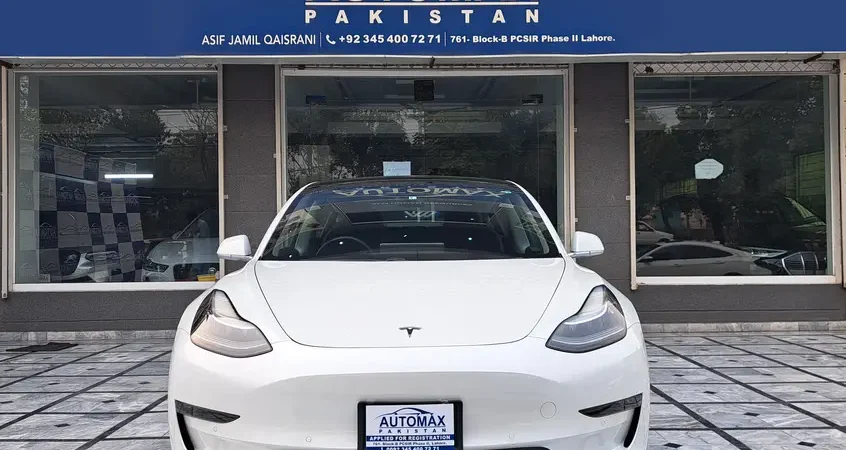In recent years, the automotive landscape in Pakistan has undergone a significant transformation, with electric cars emerging as a viable and sustainable alternative to traditional gasoline and diesel vehicles. the world shifts towards environmentally friendly practices, electric vehicles (EVs) are gaining traction in Pakistan, driven by incentives, technological advancements, and a growing awareness of importance of reducing carbon emissions. In this article, we will explore the rise of electric cars in Pakistan, their benefits, challenges, and the emerging market trends that are shaping the future of transportation in the.
The Growing Demand for Electric Cars
The increasing demand for electric cars in Pakistan can be attributed to several factors. Firstly, the rising fuel prices have made consumers more conscious of their transportation expenses. Electric cars offer a cost-effective alternative, as they significantly reduce fuel costs and require less maintenance compared to conventional vehicles. Moreover, with the government’s commitment to promoting electric mobility, consumers are becoming more aware of the long-term savings associated with electric vehicles. Additionally, the global push for sustainability is influencing Pakistan’s automotive sector. Climate change and environmental degradation have prompted a revaluation of transportation methods, with electric cars positioned as a to reduce air pollution and decrease the carbon footprint. The introduction of electric vehicle (EV) policies and incentives by the Pakistani government has further accelerated the adoption of electric cars in the country.
Government Initiatives Supporting EVs
The Pakistani government has taken several steps to promote electric vehicles as part of its vision for sustainable development. In 2019, the government announced the Electric Vehicle Policy, which aims to increase the share of electric cars on the roads, reduce dependency on fossil fuels, and improve air quality. The policy offers various incentives, including reduced import duties on electric vehicles, tax exemptions, subsidies for local manufacturers. Furthermore the government is also investing in the development of charging infrastructure across major cities. The establishment of charging stations is crucial for encouraging consumers to consider electric cars, as range is a common concern among potential buyers. With the government’s commitment to expanding the charging network, the accessibility and convenience of owning an electric vehicle are steadily improving.
The Electric Vehicle Market Pakistan
The electric vehicle market in Pakistan is still in its infancy, but it is growing rapidly. Several local and international manufacturers have begun to introduce electric models to cater to the rising demand. Brands such as Nissan, Hyundai, and MG have launched electric cars in the Pakistani market while local companies are also exploring opportunities to produce electric vehicles domestically. One of the most popular electric vehicles in Pakistan is the Nissan Leaf, known for its reliability and performance. Additionally, local startups are entering the market, developing affordable EV options that cater to the needs of the average Pakistani consumer. This diversification the electric vehicle market allows consumers to choose from a range of models, making EVs more accessible to a broader audience.
Challenges Facing Electric Car Adoption
Despite the promising outlook for electric cars in Pakistan, several challenges need to be addressed to accelerate their adoption. One of the primary obstacles is the initial cost of electric vehicles, which can be higher than that of conventional cars. While the long-term savings on fuel and maintenance are appealing, many consumers are hesitant to make the initial investment without adequate financing options. Another challenge is the infrastructure needed to support electric vehicles. While the government is working on expanding the charging network, urban areas still lack sufficient charging stations, making it difficult for potential buyers to consider electric cars as a practical option for daily use. Additionally, rural areas face more significant challenges as charging infrastructure is even less developed in these regions.
The Future of Electric Cars in Pakistan
Looking ahead, the future of electric cars in Pakistan appears promising. the government’s commitment to promoting sustainable transportation and the growing awareness of environmental issues, the electric vehicle market is poised for significant growth. As more manufacturers enter the market and local production increases, the cost of electric cars is expected to decrease, making them more affordable for the average. Moreover, advancements in battery technology and charging solutions will continue to improve the efficiency and practicality of electric vehicles. As more consumers embrace electric mobility, the positive impact on air quality and the reduction of greenhouse gas emissions will be significant for Pakistan’s environment.
Conclusion
In conclusion, electric cars in Pakistan represent a pivotal shift towards sustainable transportation. With government, increasing consumer awareness and the emergence of local manufacturers, the electric vehicle market is set to thrive. While challenges remain, the future looks bright for electric cars in Pakistan, paving the way for a cleaner and greener automotive landscape. Whether you are a potential buyer or an enthusiast, keeping an eye on the developments in this sector is essential, as electric

Leave a Reply